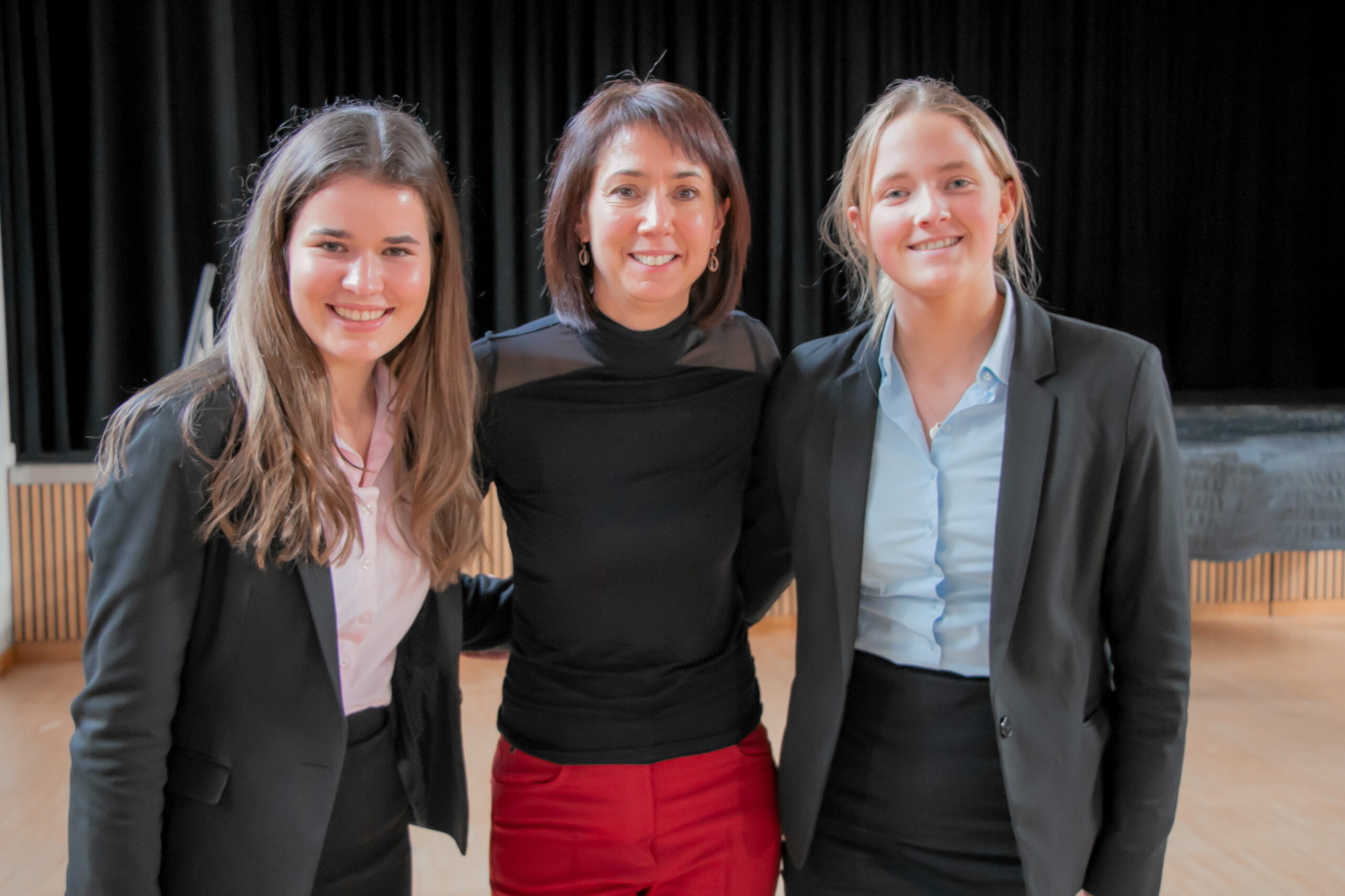DA: In the time that you have been working in sport, how have attitudes to women changed?
So massively it is hard to describe it. There weren’t women reporting on it, presenting it and certainly not commentating on it. Actually, I think as women started to come through much more with the presenting and with the reporting that rugby – both codes – sort of led the way. I’ve been pitch-side for fourteen or fifteen years and you’ve got Jill Douglas and Sonia Mclaughlan in union presenting, and that led the way in the male-dominated sports. I didn’t think that in my broadcasting lifetime you’d get a female commentator – I thought that was the boundary that might be too far, yet how wrong I was. That is the real growth area now – broadcasters desperately want more female commentators.
Jacquie Oatley was the first … she very much opened the doors for other women to come through. [When she started] there was a real element of having to have the guts to do the job. She would be sent unbelievable stuff in the post – death threats, letters about particular questions she’d asked in post-match interviews. She had male managers telling her that a women’s place is in the kitchen, quite literally… My god it’s changed. With social media there is still an element of this. … But today, being a female presenter is not an unusual thing and I could not have imagined this 20 years ago.
AM: Do you ever get nervous before presenting?
Always. And if you’re not nervous about something that’s a bit bigger there’s probably something wrong. I think even Mark Chapman probably gets nervous ahead of the finals he’s covered. It’s adrenaline. I was never a top sports person, so the closest I can be is being live at these sporting events and that adrenaline rush is addictive. Live TV has an addiction to it because you’ve got adrenaline pumping through you. If I went on during that world cup and there was not a flicker, I probably wouldn’t have been in a good place; I wouldn’t have been doing the job right. Nerves are good, you just have to learn how to control them.
DA: What advice would you give to girls wanting to pursue a career in sport?
You can do it now, that’s the biggest thing. You can do it. You can play football, cricket, rugby union and rugby league. The things that I couldn’t do. You can play it, you can commentate on it, you can report on it. Work hard… there will be an element of self-belief. I needed to learn, to persuade myself I could do the job before I’d ever put my head above the parapet and tell somebody else I could do it. But, believe it. Enjoy it. Sport is fantastic and its good fun.
AM: How did your job change during Covid?
It stopped. I had a period of ‘this has stopped,’ ‘this isn’t happening.’ I’d be rolled out to go ‘Oh, another thing’s gone.’ There was no sport. But – I’ve never been prouder to work for BBC Look North than in those opening weeks and months of Covid. We were a team of people who couldn’t do what we usually did, couldn’t tell the stories the way you normally tell them, so we found a whole new way of making television, a whole new way of reflecting what communities were doing, and I did news. I’d be rolled out to do live stuff.
Ultimately the Super League Show was one of the first sports programmes to come back, but we were still doing sport in totally empty stadia.
DA: Following the rugby league world cup, do you think more people will watch the women’s game?
If you look at women’s football there was a real lag between the TV viewing audiences and the crowds. So its only this season, since winning the Euros in front of millions of people on telly, and a lot of people turning up to watch the group games, that you’ve got people in to the grounds regularly [for the WSL]. So I think that rugby league will have that lag. Also rugby league is suffering from a lack of money which is not helping. We are in this period where we are ‘reimagining’ the game, but I don’t know what the strategy is or if there is a strategy for the women’s game. It’s certainly stronger; there were three really strong teams this year and three below them so you will end up with at least six really solid teams eventually. I think the appetite is there and I think what [the women’s game] does is it brings a younger crowd. The women’s game brings families there a lot more and rugby league does have a problem with an ageing audience.
I think they need to look and see what the strategy is. I hope they do this with the wheelchair game too… I hope people like you will push them and push that message. They’ve got to get people through the gates. If you watch on TV and it lacks that ‘uumph’ of a crowd you’re not going to be grabbed.

